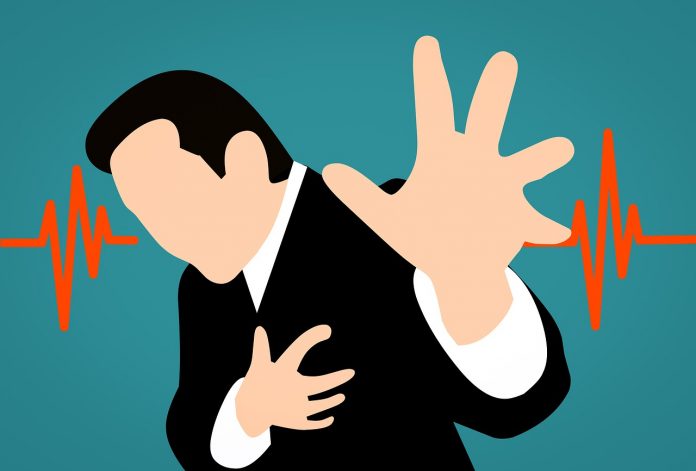
Most deaths from heart attack happen in the first few hours after the start of symptoms.
Therefore, quick treatment is the key to restoring blood flow to blocked arteries and save lives.
But in a new study, researchers found a perceived inability to act on symptoms could make a heart attack much more dangerous.
They found that the time it takes for patients to interpret and respond to heart attack symptoms is the main reason for delays in getting help.
The study was done by a team from Karolinska University Hospital.
In the study, the team examined 326 patients undergoing treatment for a first or second heart attack.
They found that these patients waited about three hours before seeking medical help. Some delayed for more than 24 hours.
The researchers found that during that waiting period, patients generally had two reactions.
First, a perceived inability to act had a significant impact on patients who waited more than 12 hours.
Some patients said they lost all power to act when their symptoms began. Others did not know what to do when they got their symptoms.
This immobilization during ongoing heart attack symptoms is possibly linked to fear or anxiety.
Second, inaccurate symptom recognition affected those who delayed for more than twelve hours.
Warning signs of a heart attack include moderate to severe discomfort such as pain in the chest, throat, neck, back, stomach or shoulders that lasts for more than 15 minutes.
It often comes with nausea, cold sweat, weakness, shortness of breath, or fear.
These patients said it took a long time to understand their symptoms; they thought the symptoms would pass; they thought the symptoms were not serious enough to seek medical care, and they thought it would be difficult to seek medical care.
On the other hand, patients who could accurately identify their heart attack symptoms and seek medical help quickly had a wish to seek care.
They knew the symptoms were serious and where they should go to get help. They did not try to divert their thoughts away from the symptoms.
The researchers suggest that doctors need to educate their patients about how to recognize heart attack symptoms and how to seek medical care.
This may reduce the delay in heart attack treatment and save people’s lives.
One author of the study is Dr. Carolin Nymark, of Karolinska University Hospital, Stockholm, Sweden.
The study is published in the European Journal of Cardiovascular Nursing.
Copyright © 2019 Knowridge Science Report. All rights reserved.



